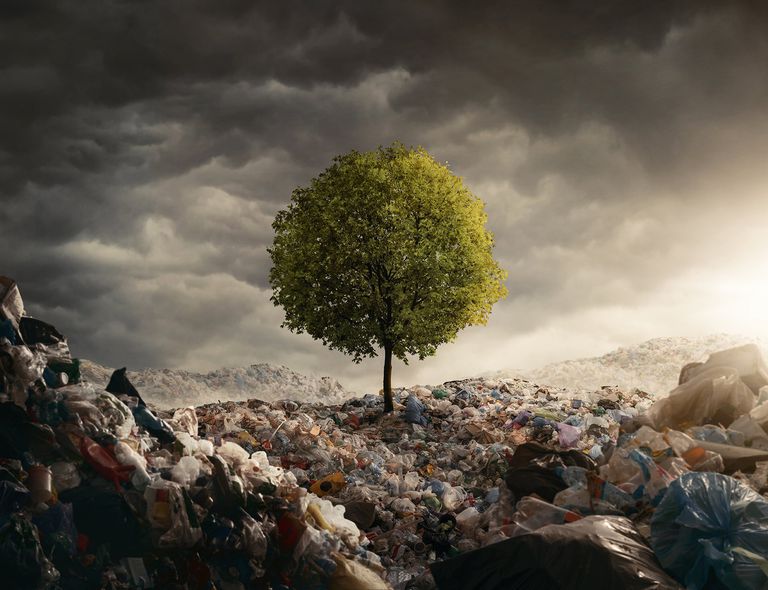Sustainable stretching: PET film from DORNIER lines improves the energy and ecological balance
Food packaging, medical blisters and solar panels: films are used reasonably all over the world. But they are increasingly being criticized as source of environmentally threatening plastic waste. Lindauer DORNIER GmbH will be demonstrating how innovative system technology can significantly improve the energy and ecological balance of film at the K exhibition in Düsseldorf from 16th to 23rd of October. The machine manufacturer will be presenting new concepts for energy-efficient and sustainable film production.
When the environmental impact of PET film is discussed, the focus is usually on recyclability and the level of recycling rates. However, there are other important factors that influence the ecological balance of the material – for example its thickness in combination with its barrier characteristics. Because the lower the film thickness and the associated weight savings, the more economical its use is with a less environmental and infrastructural impact. A principle the engineers at DORNIER have fully applied: “PET film produced on DORNIER lines has the lowest basis weight on the market,” says Bernhard Wandinger, Head of Product Line Specialty Machines at the innovative family company from Lake Constance.
Efficiency through complete inline recycling
DORNIER will also demonstrate in Düsseldorf how smart recycling of production waste works. “Film stretching lines from DORNIER recycle production waste completely inline,” says Wandinger. For example, the separated film edge is fed back into the extrusion process, allowing the edge trim to be reused in continuous production without regranulation. Since the recycled material does not have to be melted again without intermediate regranulation, the viscosity of the material remains at high level. According to Wandinger, the energy required for waste processing and recycling should be further minimized in the future. The newly developed DORNIER Diamond Flake Silo, which in combination with a film stretching line or as part of a film recycling system offers the ideal solution for any flake storage, also sets new standards in terms of efficiency. “The technology, developed according to the latest principles and criteria, helps to avoid bridge building and ensures optimum flake discharge,” states Wandinger.
Improved airflow increases energy efficiency
An improved and patented air flow of the transverse stretching machine (TDO) with a new penthouse design will also be presented at the K. This reduces thermal energy consumption in film production by up to 35 percent. Because the long-life TDO chains with the patented clip system can be overhauled many times in the course of their production lifetime, DORNIER lines can be used efficiently for decades. This way, lines that are up to 50 years old can also be adapted to the latest requirements in terms of productivity, economy and environmental protection by means of conversions. “Sustainability is a long-term corporate strategy at DORNIER,” emphasizes Wandinger, Product Line Manager. Upgrades of the control system and drive technology also ensure that the lines “Made in Germany” have a very long lifetime and energy efficiency, thus reducing the CO2 emissions.
Even the width of the line is of central importance for energy-saving and sustainable stretching: The recently started world’s widest PET film stretching line from Lindauer DORNIER not only exceeds the company’s own record width; with its 10.6 meters, the line shines with production speeds up to 550 meters of film per minute and a production quantity up to seven tons per hour. This significantly reduces specific energy consumption. The first PET line of this dimension went into operation in South Asia in the middle of this year. According to Wandinger, further lines of this width will be commissioned in the next few months.
The fact that DORNIER innovations also have a considerable influence on the success of the energy turnover is shown by the well-proven MD-Relax system for the transverse stretching process, which is based on a variable clip. With this system, the film shrinkage, especially the MD shrinkage, can be perfectly adjusted. Film from DORNIER lines is therefore perfectly suited for films which are exposed to high heat immissions, for example as battery separator film in electric cars or film in photovoltaic elements. The reason is that the very good dimensional stability of the film even at high process temperatures in the longitudinal and transverse directions eliminates the need for time-consuming offline post-treatment.
System partner for component, fiber and polymer manufacturers
The Composite Systems product line will also present new developments for roving and 3D weaving machines, as well as tape production systems and tape weaving machines in Düsseldorf. As a system partner, DORNIER supports component, fiber and polymer manufacturers in the production of semi-finished textile products made of glass, carbon, aramid and basalt.
24/7 online shop for original parts: The new myDoX® customer portal
The new customer platform myDoX® will also play a role at the K. The portal is based on the very latest database technology and will add digital order management to DORNIER’s highly regarded personalized technical, installation and maintenance service. It will provide an online shop with permanent availability for original parts (DoXPOS – Parts Order System) for all product lines.




